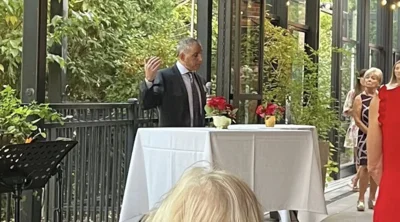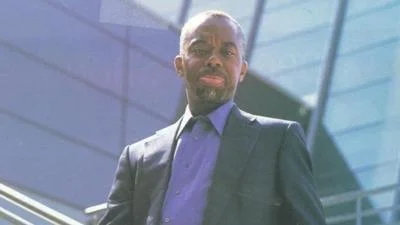State Rep. Lou Lang (D-Skokie) is mincing few words in blaming Gov. Bruce Rauner for the state’s lack of a balanced budget over the past 19 months of his administration.
“If the governor did his job we would have a budget,” he told colleagues recently gathered in Springfield. “We don’t hear about him saying let’s sit down and get the job done. Governor, do your job.”
Lang, the right-hand man and longtime top-ranking lieutenant of House Speaker Mike Madigan (D-Chicago), was the highest-ranking Democrat available for comment, as Madigan has not answered questions in a press conference for decades.
Recent comments by Lang suggest he may not be the right person to trumpet the need for compromise and bipartisanship politics. Despite Lang’s claims about Rauner’s intentions, he recently admitted that House Democrats would have no interest in coming to a budget agreement of any sort with Rauner during his tenure.
As it is, the state remains in the throes of one of the longest budget droughts in history, a stretch that has left much of the region paralyzed by the impasse and taxpayers on the hook for billions in unpaid debt.
After some optimism that things might be moving in the direction of a Grand Bargain compromise, progress has again slowed to a crawl after weeks of negotiations between Senate President John Cullerton (D-Chicago) and Minority Leader Christine Radogno (R-Lemont).
Critics argue that the so-called Grand Bargain, a package of 12 bills, does little to reform government practices and nothing to address the pension crisis while imposing new taxes on Illinois residents and raising others.
Lang’s address echoed the sentiments recently expressed by Cullerton when he hinted that the “intricate and delicate” nature of what’s being brokered speaks to the burning obligation lawmakers feel in hammering out a settlement both sides can live with and the state can finally began to regain its financial footing.
“Were (Rauner) here, he might be surprised to learn that all 118 of us in this chamber would like to take care of the needs of all the people,” he said.
During his Feb. 15 budget address before the General Assembly, Rauner signaled that he might be open to adopting at least some of the provisions highlighting Cullerton's and Radogno’s effort, but since then there’s been little public movement on any compromise at all.
Instead, the Rauner administration is pushing for a deal that benefits taxpayers to a greater extent.
"We appreciate the hard work of the Senate in trying to pass a bipartisan agreement that can become law," Rauner spokeswoman Catherine Kelly said. "Some progress has been made, but more work is needed to achieve a good deal for taxpayers. We encourage senators to keep working toward a good deal for taxpayers."
Since then, the standoff between the governor and the speaker has grown to be so bitter and contentious Cullerton and Radogno deliberately keep both of them out of the loop in their talks over fear they might poison the atmosphere and make any real chance of compromise null and void.
“We don’t have to be stuck in the past,” Lang said in a press release.
Without a budget for 19 months and running, some 22,500 people fled the state over a yearlong period beginning in July 2014, according to a study recently released by New World Wealth. Researchers also found Chicago is losing millionaires at the fourth-highest rate in the world.






 Alerts Sign-up
Alerts Sign-up